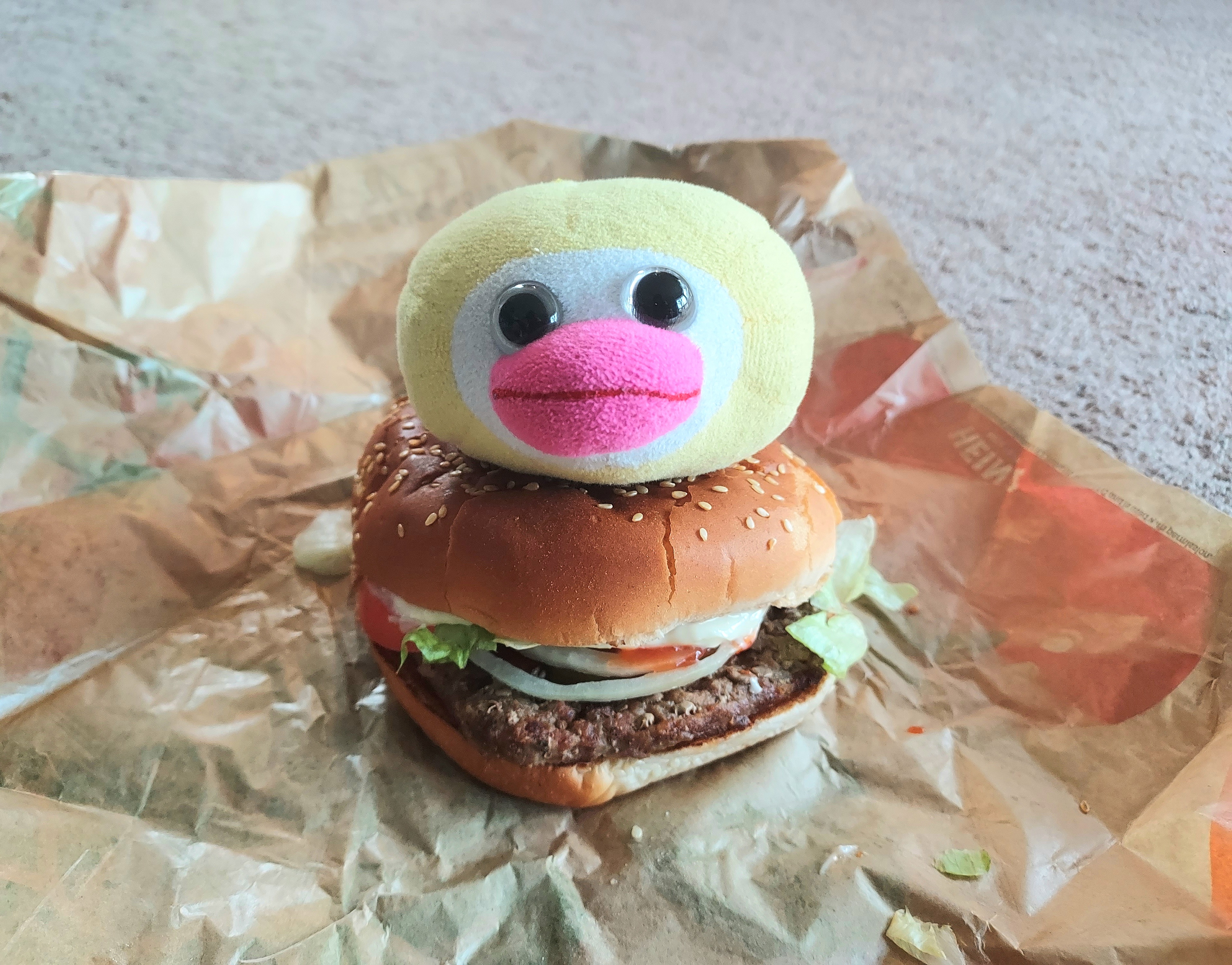It uncovered eight WHO panelists involved with assessing safe levels of aspartame consumption who are beverage industry consultants who currently or previously worked with the alleged Coke front group, International Life Sciences Institute (Ilsi).
Their involvement in developing intake guidelines represents “an obvious conflict of interest”, said Gary Ruskin, US Right-To-Know’s executive director. “Because of this conflict of interest, [the daily intake] conclusions about aspartame are not credible, and the public should not rely on them,” he added.
We’ve studied this chemical literally more than any other food additive and there’s still nothing definitive. Also mice are not a good stand-in for humans. They are really only used for acute toxicity and such.
But the mice genetically predisposed to getting tumors got tumors. What more proof do you need?
It’s official: Cancer causes cancer.
One step closer cancer causing mice
Fun fact. A potential side effect of many cancer treatments is… cancer
just gotta hope it kills the old cancer before it gives you a new cancer
How hecking cancerous cancer is?
Cancer%
I honestly have no clue on the studies but I can’t drink anything with aspartame in it at all, even a single sip bloats me and screws up my bowel movements hard. It might just be an allergy but it took me 3 years to find the cause and I’m happy to avoid it that’s for sure.
I believe there are studies showing it messes with gut bacteria. Seems consistent with what you describe.
yeah the occasional non-cancer side effects are well known by now but weirdly enough they just can’t seem to find anything conclusive on whether it causes cancer or not…
At this point I’m willing to accuse the sugar lobby for trying to sabotage this chemical out of the market
deleted by creator
Not aspartame. The study, it’s mainly one, showed that sucralose and saccharin did just that. But aspartame had no effect.
I get the worst migraines from the heavy concentrated juices that use aspartame instead of sugar. And I mean two to three days of constant head pounding, I stopped drinking the “sugar free” ones and I have not had a migraine ever since.
Migraine or headache?
Migraine since it made me sensitive to light as well, and like blank spots in my vision as well.
Oof sorry for my pedantic question.
I get this weird ass headache from it.
Even if aspartame does cause cancer you get the choice of cancer or diabetes when you drink cola, so whatever. Just don’t drink it.
My gripe is that swapping out sugars for fake ones doesn’t seem healthy long term regardless of any direct impact aspartame itself may have. Just have less sugar imo.
Edit: didn’t realise how controversial that soft opinion would be lol. Look, drink what you want but I’m going to stick with water unless it’s a treat. I know it’s not healthy for me to scratch the dopamine itch with sugary tasting treats all the time; fake sugar or not. My perspective is less about trying to say, diet soda is bad but that there must be better alternatives to suggest than just sweetener filled copies?
How do you mean?
I’ve heard of things like the sensation of sweetness being decoupled from satiation leading to a greater urge for sweetness in compensation, but at least personally that’s not happening to me lol.
It’s pretty acidic which sucks for your teeth for one but that wasn’t what I was trying to say
Yeah I just really mean as a diet as a whole though. If you have an issue with sugar intake then you’re probs drinking way too much sugary drinks. To suggest just swapping out sugars for fake ones I don’t think is best choice to suggest for most people.
I think there’s probably tons of other issues too just aside from the excess glucose. So fix the diet not the sugar.
Yeah I agree it’s fine that a most of these chemicals are safe in moderation and well researched. My gripe is the hot swap fix-all attitude that people can take from it.
That makes sense. I’m coming at this as someone who drinks diet coke because they like it rather than to avoid drinking sugar.
Amusingly it’s the fact that diet coke is relatively less sweet that makes me like it.
And even if it’s true, it means you’ll eat the sugar instead of drinking it, and then you’ll be able to ingest less sugar before feeling full, plus you probably get some fibre with it as well which helps a lot.
I think what they mean is we shouldn’t encourage people to drink what is essentially candy water. Doesn’t matter if it has sugar or aspartame. It’s still candy
Replacing an unhealthy habit with a less unhealthy habit is still unhealthy (written as I drink a Dr Pepper zero)
Why not though? The health impact of moderate diet soda consumption seems to be pretty negligible.
Diet sodas still aren’t water, and they are pretty acidic. They eat away at your teeth, and aren’t great at actually hydrating you. It significantly reduces the harm from drinking candy water, but it doesn’t eliminate them
That’s not what this is saying. This is saying the studies saying it IS harmful were real, and the part saying “it’s probably safe in small amounts” was industry-influenced.
No, this is just saying the safe dosage level was biased by people from the industry being on that particular panel.
Despite the IARC’s new designation, the Joint FAO-WHO Expert Committee on Food Additives (JECFA), which determines safe doses of food additives, did not change its recommendation for daily intake of aspartame. JECFA still says that consuming 40 milligrams of aspartame per every 1 kilogram of body weight (about 2.2 pounds) per day is acceptable, according to a news release.
This is just 1 panel that determined the safe dosage level. This does not affect the findings of the study at all which concluded that aspartame is “possibly carcinogenic to humans” but that “We don’t know enough about the possible link between aspartame and cancer, but we can’t ignore that there’s something going on”
So they haven’t even found a definitive link or even said it’s definitively dangerous. And the 40 milligrams per 1 kilogram of body weight is the same as the recommendation from the FDA.
Also the thing it is replacing, sugar, IS known to cause cancer, diabetes, and other diseases. So take that as you will.
That last bit is what people always seem to miss.
Getting hit in the head with a branch is bad for you, but it’s less bad for you than a bullet.
In the end, you need to compare the two risks, and not decide “a is bad, no need to look at b”
I don’t much care what one study is saying. We’ve studied this chemical so much and we still have no conclusive proof it’s harmful. At some point you really gotta focus money elsewhere.
Okay, corruption like that should be corrected. Regardless, there’s no scientific evidence that aspartame is harmful. Let alone a biochemical reason for why a dipeptide of two amino acids, phenylalanine and aspartic acid, that dissociates in the stomach into its constituent components and some byproducts would be harmful in the first place.
Unless you have phenylketonuria, but you have much bigger problems in that case and, if that is the case for you, kudos on being at an age and capability to read and understand this post, you are incredible.
Edit: Also, just noticed the part about US Right To Know, which is a well known anti-science group that’s been pushing pseudoscience and fearmongering about other topics, such as biotechnology, for years. So them being involved here raises questions.
I want to get rid of it because I want a non sugar coke that doesn’t taste like burned tar soaked in urine
Then drink the Diet Coke with Splenda one? There’s also Coke Life that has stevia instead. They basically made sure they have a version with each type of sweetener.
deleted by creator
Fuck yes. Why is there sugar added to applesauce and fruit juice? Why is it so hard to find low calorie drinks that don’t contain artificial sweeteners? The way to curb sugar intake is moderation.
Sugar is antibacterial, hence why honey can stay good like forever. It’s a cheap way to increase shelf life that also makes people really like the food because we evolutionary seek that stuff out. It’s not right though. We work long hours so convenient foods should allow us to buy back some time. But when they’re all like this, you end up either having to do it yourself or risk your health. There should absolutely be limits. But with food costs as they are, who is going to fight for that? The alternatives are more expensive, or you reduce shelf life. It’s much better regulated here in the EU but we too are still not there, obesity is still on the rise.
It’s tasty, cheap, antibacterial and gives attractive colors (caramel). That’s why companies like to put it everywhere, it’s just awfully convenient.
Were I live sugar is added to cider, making it basically extra sweet apple juice with a touch of alchool.
Oh god, Okanagan Cider is so, super sweet. Might as well drink sugar water with added alcohol.
I live near a cidery, and everything is a dry or semi-dry. So much better.
deleted by creator
I live in the UK and was astounded at the sugar consumption when I visited the US.
The most interesting one was bread - it was so sweet, almost like cake, while our bread is just plan savoury bread.
There seems to be an OTT approach to added sweetness that I thought was bad in the UK but is next level in north America.
Another key difference was the milk in coffee shops. I went into Double cup and found some half and half (semi skimmed milk?) and dumped a bunch of it in my coffee. Nope literally half cream half milk. Blllerchhhh.
That just doesn’t even exist over here.
You can also just get fruity syrup and make syrup juice with a lot of water.
Nope, not an option. If I want a glass of coke after I brushed my teeth - I don’t want any sugar in it
Drinking coke - sugar free or otherwise - right after you brush your teeth will still fuck up your teeth.
It’s rammed full of acid.
Except it doesn’t stay in your mouth for hours because you salivate. With sugar, judging by how my mouth feels, the bacteria stays and probably has a whole ass banquet for hours after
Splenda is worse… Stevia is fine
Stevia tastes just awful to me. I wish I liked it.
I find that Stevia has a vaguely creamy flavour to it. Which works well in some instances, and not in others.
Aspartame just tastes awful, for me I get this weird sticky/bitter sensation over the roof of my mouth and turn my throat.
Splenda/Sucralose tastes fine, but has noticeable effects elsewhere, which are a bit TMI.
That’s not better. Splenda just tastes odd. And I haven’t seen that in stores in years, and I don’t remember liking it the first time around
Splenda legit causes digestive problems… Aspartame is fine… Especially in comparison
Drink Olipop or Poppi.
Dude, Olipop Vintage Cola is next level. That perfect vanilla cola without being too overpowering. I love to have it with a great sandwich and chips or dinner!
This reads like an ad straight from the 60s lol
I like their Cherry Vanilla. It goes right through me, though. The apple cider vinegar they use cleans you out. 🤐
Absolutely… Aspartame is safe
Aspartame isn’t only safe, it also goes GREAT with a cold glass of Coke Zero™! *
*these statements have not been approved by the FDA
I especially like the part where they get away scot free, and the guy is just telling us to ignore them… maybe fire them for the conflict of interests? Ugh.
I was under the impression the research showed that there was a risk but you needed to consume an exorbitant amount to get there. Around 20+ cans of coke a day which the majority of people don’t do.
The World Health Organization said it was safe up to a certain level. The people in the WHO who said that work for Coca-Cola.
This means we can’t rely on the recommendation, and the actual “safe” amount may be much lower than that. The article goes into good depth and gives counterarguments too.
It is important to note that in reality there is no safe amount for a carcinogen. Sometimes a threshold is set to reduce risk to a reasonable amount in necessary workplace exposure or medical treatments.
The truth is, I think we’ll all eventually realize any sweetener should be seen as candy, not a thirst quencher.
Thank you being basically the only person in the thread who actually read the article.
The part where they said “aspartame is probably bad” wasn’t the corrupt part. The corrupt part was when they put an addendum saying “a little bit of cancer is okay as a treat”
I read somewhere that asparteme doesn’t accumulate and just passes through the body, which was an argument for having a regular intake below the threshold to be not a risk. With this revelation though, that seems sus now too.
I think that’s what this is about.
It doesn’t mean aspartame is bad and we are all going to die.
It means that perhaps the safe limits, risk reductions etc need to be re-assessed for them to be with regard to actual harm reduction… instead of the current possibility of “just enough harm that coke doesn’t get blamed, but good profit can still be extracted” that these coke associates may-or-may-not have influenced.It calls recommendations into doubt as opposed to the actual raw science.
AFAIK, aspartame has been widely studied. If it was a substance of actual risk, it would have been highlighted.
Don’t want to share my life story, but I did for a time, got to about a twelve pack and a half a day of diet coke when I was 20.
My reward was not weight loss, but an a-fib. and half a life expectancy.
I don’t blame the diet coke because I was the one buying and drinking it. But it is important people understand that something is wrong in that stuff.
Just as I wouldn’t blame cigarettes for giving me lung cancer, but I would want others to know it can.
Apart from the aspartame, that’s also like 900mg of caffeine a day, which is over twice the recommended amount, and 700mg of sodium.
Yup. what else can I say except poor self control and shortcuts are a mean combination.
I eat a lot healthier now, but that mistake isn’t one that just goes away.
ADHD?
Unmedicated, I would crave soda like a fucking sugar tick. I’d eat until I was sick, then eat some more. Actually rotted a bunch of my teeth with my shitty habits and poor self-control. Needed several root canals… ugh…
Medicated, I have soda maybe once per month or every other month. I don’t have uncontrollable cravings for sugar anymore. It’s fucking great!!
I think self medicating with caffeine may have been part of it. Congrats on the cutting back.
It makes people with ADHD sleepy right?
Not to defend diet coke (any kind of soda is not healthy for you, regardless), but I would generally assume that drinking 144oz (assuming 18x8oz cans/day) of any type of beverage that isn’t plain old water would tend to cause some level of serious health effects, given that’s more than your entire general recommended daily fluid intake from all sources. I feel like the general takeaway is that most food and drink is bad for you in excess, and companies constantly slapping “diet/low fat/low carb/etc.” labels on junk food products that are marginally healthier than their peers gives a false impression that you can have your cake and eat it too in terms of negative health effects from these foods/drinks.
That’s basically how I’ve felt about it. If you’re getting too much sugar from drinking soda, the correct response is to drink less soda - not substitute the sugar with something that tricks your body into thinking it’s sweet.
But this ignores that people want to drink soda, and sugar-free soda lets them do that while also not consuming vast vast vast amounts of pointless calories.
You have to balance enjoyment with health, not doing so is why most diets fail, if you force yourself into a healthy diet that makes you sad you will almost inevitably end up falling back to the junk food because it makes you happy.
People want to eat lots of fat, sugary foods but that doesn’t mean they should.
Certainly, it’s about balancing enjoyment with health. However I think it’s important to listen to what your body is telling you, when it’s telling you you’re having too much of something.
Honestly not sure what your point is here, you seem to have ignored my argument and replied with a non-sequiteur.
Yeah, people should listen to their bodies, and their bodies say that they want to drink soda.
Now, is it better to drink soda with a shitload of calories, or soda with like 3 calories?Most people have not trained themselves to pull off intuitive eating and thus their bodies just crave fats and carbs, so the best thing to do to improve their diet is to satisfy those cravings while consuming fewer calories.
This then provides an excellent motivation to re-calibrate your cravings as you realize that it is, in fact, possible to eat healthily without being miserable.
The body isn’t saying it wants soda. There is no drive from the body for soda. The body might want sugar, but it’s also saying it’s having too much. The brain is saying it likes the taste of soda, but taste isn’t nutrition.
Most people have not trained themselves to pull off intuitive eating and thus their bodies just crave fats and carbs, so the best thing to do to improve their diet is to satisfy those cravings while consuming fewer calories.
The best thing to do to improve their diet is to improve their diet. The point is to learn that those cravings aren’t right, so you can learn to identify your body’s real cravings are. If you keep drinking diet soda you may be less likely to make meaningful change, at best you’re delaying it.
That’s so unfortunate, thanks for sharing that. Hope you’re doing okay.
You should absolutely blame the Diet Coke and the execs that push it. Almost every aspect of eating the food we need to live is distorted by people trying to make as much money as possible at the expense of our health. They know it. They spend billions doing it. You likely wouldn’t have been consuming it or so much of it if it wasn’t on every billboard and commercial and was at the back of the store in plain boxes without the big ‘sale’ or ‘bogof’ stickers. It doesn’t have to be this way and you shouldn’t blame yourself or any other individual for a social problem.
Around 20+ cans of coke a day which the majority of people don’t do.
This guy has never met an American. Ever heard of a Big Gulp? We literally had private companies engineer bigger soda cups to handle how much fucking soda Americans drink.
I dont necessarily disagree with your overall point about Americans drinking a lot of soda, but I don’t think pointing out that a company makes a cup a little smaller than 3 cans of soda is a very strong counterargument to the claim that it takes 20+ to be harmful…
The largest Big Gulp is 50oz and when I was a kid, people leaned on free refills for them. A 50oz is almost a whole 2-liter.
You’re not wrong, it’s not the best example, but I’ve seen people go through numerous Big Gulps a day.
Hell, when I worked overnight as a security guard, one of my fellow guards who drink an entire 2-liter of Mountain Dew to himself every night.
It’s hard for me to think about because I can’t even get through a whole 16oz without stopping halfway because it’s too syrupy.
A 2 liter a day is still miles away from the amount you’d need to drink to reach unsafe levels.
I think you’d have to drink 3+ a day before you’re at unsafe levels if you’re 150lbs (and…well…if we are shitting on eating habits, 150 is a very light American).
Tbf, about half of a Big Gulp is filled with ice.
Holy balls that’s a large cup wtf. How popular are they? I mean, you see them in movies but that’s all the info I can draw from lol.
This is fair lol. I’m Canadian and when I was 17-20 I’d consume around 4-6 cans a day which was a crazy amount to myself and most people. 20+ seems nuts just financially.
Agree. Even recently, I would have up to 5-6 cans worth myself (have since cut down a lot), but alongside the financial cost, there’s also the acid eating away at your stomach lining and the excess caffeine to worry about alongside the Aspartame.
Frankly, given the stomach issues and acid reflux that too much soda can give you, I would imagine that people (even sodaholics) would have to stop much sooner than 20 due to all the other issues involved with sodas before the problems with Aspartame would even come into the picture.
Not to say that I’m not leery of Aspartame, but diet Soda has other major issues beside it.
The soda acid thing is also a myth. The PH level of your stomach acid is much higher than soda.
Edit: Yes, had that backwards…but my point stands…stomach acid is more acidic than soda. It’s not an issue.
Yes…I concur, it’s terrible for your teeth.
Lower pH means stronger acid. Soda is not more acidic than you stomach acid. The real danger that the acidity of soda poses is to your teeth.
And considering the knock-on effects to the rest of your body from your teeth, it’s not an issue to sneeze at.
cut a stomach open, spread the stomach acid on a painted car hood, eat that shit right off. saying it’s the same ph as stomach acid, is like saying 1 of a thing is safe but 2 of the same thing has to be safe as the 1 thing. idiocy. and said with such confidence. ah the internetz, such a boon to humanity.
Sigh…come back after highschool chemistry.
You’re not wrong, it is nuts, health-wise and financially!
A Big Gulp is 30 ounces, 20 cans of coke is 240 ounces of soda. That’s a lot of Big Gulps. That said the Double Gulp, the largest size 7-11 offers, tops out at 50 ounces. Yet you’d have to drink almost five of those to reach 20 cans.
in 2018 The United States consumption of soda per capita was 38.87 gallons per year, or 13.6 ounces of soda per day. Which was down from 45.5 gallons per year in 2010.
We literally had private companies engineer bigger soda cups to handle how much fucking soda Americans drink.
This is a really weird statement. Like it was some sort of feat of engineering to manufacture larger cups.
Very arguably, with 1970’s manufacturing standards, and how much 32 ounces of liquid weighs, it was an engineering feat at the time. So much so that the originals looked more like a milk carton.
https://physicalculturestudy.com/2017/08/31/the-history-of-the-big-gulp/
Potts’s desperation caught the attention of Coca-Cola, who in 1976 sent representatives to the merchandise manager with a strange proposition. Coca Cola wanted to create a new 32 ounce cup for their drinks, a previously unheard of amount. The largest size at the time was 20 ounces, and even that was considered to be monstrous. Instinctively Potts refused, claiming that the Cups were “too damn big” and in Potts’s defence, he was right. The design for the 32-ounce cups was square on the bottom and resembled your average milk cartoon.
Not a feat of engineering, a feat of marketing
Remind me of the “Parks and rec” joke about “child-sized soda”: it’s the size of a small child!
They do in Múrica. I’ve seen it
Regardless of this corrupt shit, in general studies show that it’s safe in normal quantities. Health wise it’s much better then sugar.
What’s a normal quantity? Keep in mind that caffeine is addictive, driving consumption. Not a good combination to use chemicals that are safe in small quantities, in a product designed to be addictive.
Literally every fucking health org has studied the chemical and found no evidence of health issues connected to it. It’s only this one study that the IARC cites. And IARC doesn’t take dosage into account either.
Regardless of people’s taste for aspartame, it is literally not dangerous. It does taste dry. It doesn’t taste like sugar. You do not have to enjoy it. But it is not bad for you.
edit: my badly worded comment got some discussion going which is great. I just want to say that I was being as hyperbolic as the worried people and I’m sorry. Of course it’s not black or white. There are factors to consider, but what I was trying to express was that aspartame leans to the safe side rather than dangerous.
Obviously do not drink 25 cans of soda a day, obviously do not compensate for the fact that you’re drinking a “light” product by consuming more of it. But a can a day isn’t gonna ruin your health.
Except for the fact that a decade ago aspartame was shown to create pre-diabetic conditions in the gut, like sugar, except worse. And that studies proved that because psychologically people think it’s “light” they drink more soda and actually gain weight. Yeah if you ignore those pesky little facts it’s totally is 100% harmless. So definitely go around telling people it’s 100% harmless.
Do you have stock in diet Coke or what?
You can almost never say that something is not dangerous, unless it’s practically mathematically proven…
This applies especially for food etc.
I think we have to be much more conservative with food and substances we put into it. A lot of (Meta-)meta-studies suggest, that processed food is a health risk.
And this may sound a little bit far-fetched, but I think a good amount of the idiocracy in (especially) the USA may be related to the food (as also a lot of studies have found connections to brain/psychological health).
Yeah, actually.
And, like, literally EVERYTHING has an LD50 value.
For some things, the value is astronomically gargantuan, though.
Like, if you have to consume more than your body weight of a substance within thirty minutes in order for it to have a lethal effect, it’s very improbable to ever happen by accident, and very difficult to make happen on purpose.
Allegedly, the LD50 for aspartame is 10,000 mg per kg of body weight
(I fucked up the math on the line that used to be here and got justly called out for it; 10,000 mg is only 10 grams. If someone weighs 60kg it would only be 600 grams which is still A LOT but not nearly what I thought it said at first) (And that’s how much to get to a fifty percent chance of dying - I don’t know what the shape of the curve was leading up to this point, it could be nonlinear.) HOWEVER, I can’t recall if LD50 only accounts for acute mortality, or if it also accounts for chronic mortality; like, if it gives you a type of cancer that takes 20 years to kill you somehow, is that even known? no idea.10,000 mg per kg of body weight you would literally have to consume 10x your body weight in aspartame
10g/kg is actually 1/100th your weight, not 10 times it
Shit, yeah, I fucked up that math good and hard
Additionally to what the others already said:
LD50 and “bad for your health” are quite separate things.
Vitamin D for example has an LD50 of ~30mg per kg. So according to your logic, it’s way unhealthier than aspartame (factor ~100). Though in reality you would die without vitamin D intake.
10,000 mg equals 10 g, not 10 kg, so you would only need 1/100 of your body weight. Still an unrealistic amount, but far away from 10x.
One thing I always like to remind people of: The fact that these effects are, if at all existent, so small that they can barely be observed also means that if they do turn out to be harmful, it’s not too bad, as the harm is also small. It’s not like e.g. lead in the water where you can very clearly prove a significant harm.
This kind of shit makes people distrustful of science in general. Way to go, guys.
Don’t worry, it’s all worth it in the end because the corpos made more money! /s
It should make you distrustful of politics, lawmakers, lobbyists, and capitalism not science itself. Pure science is unbiased and systematic, by definition.
Science is done by people, and people are inherently biased at all times and about all things, consciously or not.
The issue here isn’t bias, it’s a conflict of interest.
deleted by creator
I don’t understand how people are so surprised to discover that experts in a particular field or industry…
GASP!
Have worked or continue to work in said field or industry!
Is it really a surprise that an expert in the subject of aspartame works or has worked for one of the biggest users of aspartame? You think aspartame experts are going to work for car companies?
Like if you wanted to find an expert on say… petroleum, it shouldn’t be a surprise that they have worked for an oil company. That said, any obvious conflicts of interest should be noted in any reports so that others are aware, but someone’s expertise shouldn’t be immediately discounted.
I don’t think the shock is that they work in the industry as much as it opens up a LOT of possibilities for a conflict of interest.
When you’re taking ANY measurement ever, conflicts of interest are bad. And what’s at stake here is the health and safety of anyone who eats aspartame, which is a lot.
Point taken and why I think any conflicts just need to be noted and weighed with the rest of the facts, as opposed to completely discarding someone’s expertise.
I don’t think the expertise would get discarded so much as their conclusions. Again the conclusion is that the levels we are ingesting are safe. I don’t want to trust anyone who could profit from the sale of the product they are judging the safety of.
In the 1940s tobacco companies said cigarettes were safe, in the 1950s and 60s we took thalidomide because it was marked as safe, in the 1970s oil companies said petroleum emissions weren’t of any concern.
There is a pattern here and it’s very, very simple
Profits>everything
these kinds of conflicts of interests need to be disclosed properly, clearly and up front, and folks need to be critical until its sufficiently peer reviewed
whether other findings agree with these isnt relevant, its still extremely important that folks know that corporate interests might be colouring any given paper
researchers in a given field are practically always going to have jobs with big players in those fields, but taking biases into account is still important for interpreting findings
I think it’s sort of a catch 22. The people that tend to be the most knowledgeable about a particular science often have industry experience doing the exact thing you want them to study now. The idea that people could study the effects of aspartame for decades but are now “tainted” because they used to work for a soda company doesn’t necessarily square up to economic reality.
If however, you choose to put your foot in the sand there you’re going to have a bunch of people on a committee that have no idea what they are doing (which by the way people will also criticize you for) Remember when Trump appointed senior cabinet positions to people with completely unrelated experience? Such as Ben Carson (a former medical doctor) being appointed secretary of housing.
It’s a lose/lose situation I’m not sure what you all are expecting.
Similar to how oil companies researched global warming. They have the scientists in the right field and the data, but corporate interests will cover up things that don’t align to their business models.
Overall if the study is sound, other scientists can chime in and prove or disprove their results. Really the laymen should take studies (done by anyone) with a grain of salt until the wider community comes to a consensus,
It’s almost as if it’s not necessarily a dichotomy at all
That situation is a bit different. Oil Companies performed proprietary research internally and promoted those results as scientific. Whereas, the implication in this post here is that anyone who ever worked for an oil company in climate science can no longer do climate science for an agency.
This is the best summary I could come up with:
In May, the World Health Organization issued an alarming report that declared widely used non-sugar sweeteners like aspartame are likely ineffective for weight loss, and long term consumption may increase the risk of diabetes, cardiovascular diseases and mortality in adults.
A few months later, WHO declared aspartame, a key ingredient in Diet Coke, to be a “possible carcinogen”, then quickly issued a third report that seemed to contradict its previous findings – people could continue consuming the product at levels determined to be safe decades ago, before new science cited by WHO raised health concerns.
It uncovered eight WHO panelists involved with assessing safe levels of aspartame consumption who are beverage industry consultants who currently or previously worked with the alleged Coke front group, International Life Sciences Institute (Ilsi).
That same day, WHO’s Joint Expert Committee on Food Additives (Jecfa), which makes consumption recommendations, reaffirmed the acceptable daily intake of 40 mg/kg of body weight.
Ruskin said the move also marks a change in direction for WHO, which in 2015 distanced itself from Ilsi when its executive board found the group to be a “private entity” and voted to discontinue its official relationship.
In the “avalanche” of media coverage of WHO’s designation of aspartame as a possible carcinogen, many outlets noted WHO’s split decision, or reported that WHO found the product to be safe.
I’m a bot and I’m open source!
Okay, so, let me get this straight. This panel said aspartame is safe, but it’s got a conflict of interest, so we should ignore all that and fall back to the conventional wisdom that…aspartame is safe?
A lot of strange defending of this corrupt behavior here. The fact that this corruption exists immediately calls into question the safety of the recommendations. It won’t be the first time Americans were killed for corporate profits.
A lot of scientists who actually know the studies and biochemistry involved, actually. Not “defending of this corrupt behavior”, but just pointing out that corrupt behavior doesn’t negate the science itself.
Corruption is a part of companies and capitalism. Even the “good” companies, like renewables, are corrupt and do corrupt things.
just pointing out that corrupt behavior doesn’t negate the science itself.
But when corruption doesn’t let the science happens? You know, in 2020.
The science has been done by dozens of independent scientific teams around the world for decades. They have repeatedly shown the lack of health impact from aspartame.
deleted by creator
This type of corruption should require those involved getting lengthy prison sentences to.
Instead they’ll get a reprimand and a reminder not to do it again
deleted by creator
Just looking at the list of topics (“All topics” button in the menu) raises some major alarm flags about the trustworthyness of usrtk.org as a source.
deleted by creator
They’re a pretty well known anti-science group.
That site is sketch as fuck. Covid bullshit, the works.
deleted by creator
The biggest issue I’m seeing is there’s other research that is the opposite of that so it keeps going back and forth which is problematic and hard to parse.
Edit: Like others stated that site is extremely sketchy and I’m very skeptical of their credibility.
Also it tastes like ass
Did WHO know this before announcement? Lol
I mean … the people at WHO who hired them, must have known? (Conflict of interest is important in these kinds of health subjects)…
Of course they still tell diabetics to keep chugging down carbs and just buying more and more insulin…
I dont trust them.
Of course they still tell diabetics to keep chugging down carbs and just buying more and more insulin…
To be fair, that’s pretty much what a lot of non-diabetics do, except they make their own insulin.
They do?




























